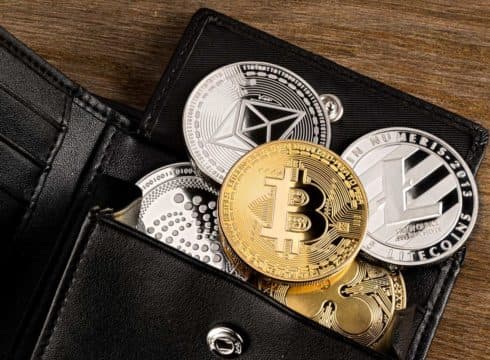In the event of a ban on crypto in India, the logical route for many would be to sell their assets but alternatives do exist
Long-term crypto investors may still try and find ways to keep their crypto assets with themselves through wallets from offshore exchanges
Investors could also choose to move their crypto assets to self-custody wallets or invest in P2P cryptocurrency-based lending models to reinvest their funds
Inc42 Daily Brief
Stay Ahead With Daily News & Analysis on India’s Tech & Startup Economy
India could well ban Bitcoin and other cryptocurrencies with the passing of the Cryptocurrency and Regulation of Official Digital Currency Bill, 2021, in the parliament. According to some estimates, almost 7 Mn Indians hold $1 Bn worth of cryptocurrencies, with Bitcoin being the most popular in the country.
Media reports suggest that the bill while banning the holding, mining and trading of cryptocurrencies, will give investors a three-to-six months transition period to exit. While the logical route for many would be to sell their assets, crypto hodlers aka those who are in it for the long haul may still try and find ways to keep their crypto assets with themselves.
Self-Custody Wallets Could Be A Safe Haven
Investors can choose to move their crypto assets to self-custody wallets, which are digital devices in the form of USB drives, micro SD cards or smart cards. These devices store the investors’ private Bitcoin key or keys. Some of the popular hardware wallets for storing bitcoins include Ledger, Trezor, SafePal and BitLox. Investors can choose to store their crypto assets in these wallets, and perhaps even send these wallets overseas to their friends or family if they’re worried about keeping their wallet in India in the event of a ban.
However, there is a catch here too. If the investor transfers their crypto assets to a hard drive or a pen drive via the wallet from an Indian crypto exchange, then regulatory authorities could track down these cryptocurrencies if they want to. This is because all Indian crypto exchanges follow KYC (know your customer) norms and require users to provide details of their PAN Cards for signing up.
There was also another case reported last month of a German programmer who had stored 7,002 bitcoins on an encrypted IronKey hard drive but then lost the password to the device, thus losing access to his crypto assets which would have been worth at least $220 Mn.
Can India Actually Track Crypto Investors?
It is unlikely that regulatory authorities will actively pursue the crypto trails of Indian investors. According to experts, the Indian government’s agencies don’t have the infrastructure to execute the ban.
Various stakeholders have suggested that the Securities and Exchange Board of India (SEBI) can bring crypto exchanges under its purview and treat them at par with conventional stock exchanges. However, in 2018, SEBI had informed the Department of Economic Affairs that it wasn’t suited for the regulation of crypto-assets.
Given that the ban will be hard to enforce, it can be anticipated the passing of the bill which mandates a ban, would lead to the proliferation of a shadow economy, where negative use cases of crypto will flourish.
Another option for Indian investors in the event of a crypto ban here would be to transfer their crypto assets to their friends and family based abroad. However, once crypto assets are transferred to another user, the receiver will become the owner of those coins and could have to pay tax on those assets as well, as per the regulations for crypto in that country.
{{#name}}{{name}}{{/name}}{{^name}}-{{/name}}
{{#description}}{{description}}...{{/description}}{{^description}}-{{/description}}
Note: We at Inc42 take our ethics very seriously. More information about it can be found here.






